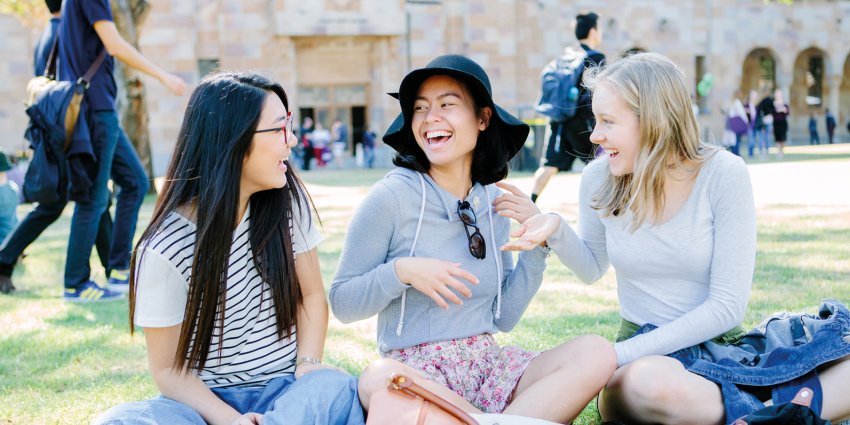
Many people think that university students have it all — time to read, think, sit in the sun and socialise — but that's just a mirage conjured up by glossy advertising.
The reality is vastly different.
Students, and particularly Indigenous students, are struggling to make ends meet. Unable to cope with the constant juggle of work and study, they are dropping out of subjects. And they are worrying themselves sick.
The latest report by Universities Australia into students' finances, based on a survey of 18,500 students, shows that one in seven university students regularly go without food because they have to fork out on other necessities — like a roof over their head.
Unsurprisingly, Indigenous students and students from the poorest 20% of households are suffering the most.
One Indigenous full-time student told the survey: “I don't eat much anymore”.
Another undergraduate student said: “The stress of constantly worrying about how to pay next [month's] rent, or simply paying for food, is really hard.”
A postgraduate student, undertaking a higher degree by research, told the survey: “I am seriously considering deferring or withdrawing from my study due to extreme hardship.”
And it's not that tertiary students are becoming slacker.
The study found that four in five domestic students have a job, and in many case more than one. Work for students is mostly casual, underpaid and without penalty rates. They are mostly not in unions and therefore have no recourse over discrimination.
For many students, working casually means they cannot refuse shifts, and have to deal with understaffing, as well as “casual” sexism and racism in the workplace. Their studies suffer, as does their capacity to cope.
International students, who are charged much higher fees for the same degree, are only allowed to work a few hours a week. Most would happily do more to relieve their financial stresses.
These findings should not come as much of a surprise. With rents in most university cities and towns soaring along with the price of food and other basics such as transport, students are under enormous pressure.
In addition, domestic students know that failing a subject means racking up a bigger Higher Education Contribution Scheme (HECS) debt — yet another worry.
What sort of sick system puts young people, who are trying to gain the skills to make a contribution later on, into such an invidious position?
Decades ago, the major parties in this rich country decided to turn education into a commodity and make students pay for it. Today we are seeing some of the human consequences of that miserly decision.
Education is now Australia's largest service export — worth $28 billion in 2016-17— and its third- largest export earner. International students, as well as domestic students, are right to be incensed that they are being treated as “cash cows”.
Green Left Weekly is about giving a voice to those who are active in building a better world. If you, like us, think students deserve better, support the paper that helps them fight for their rights.
You can make a donation to our Fighting Fund securely online here.
If you are unable to donate by credit card, please email accounts@greenleft.org.au or phone us on 1800 634 206 (free call from anywhere in Australia) and we can arrange an alternative method.
Or simply mail a cheque or money order to:
PO Box 394,
Broadway, NSW 2007
Australia
Direct debit can also be made to:
Account Name: Green Left Weekly
BSB: 633-000
Account Number: 160058699
Please put your name in the description so we know who the payment is from.